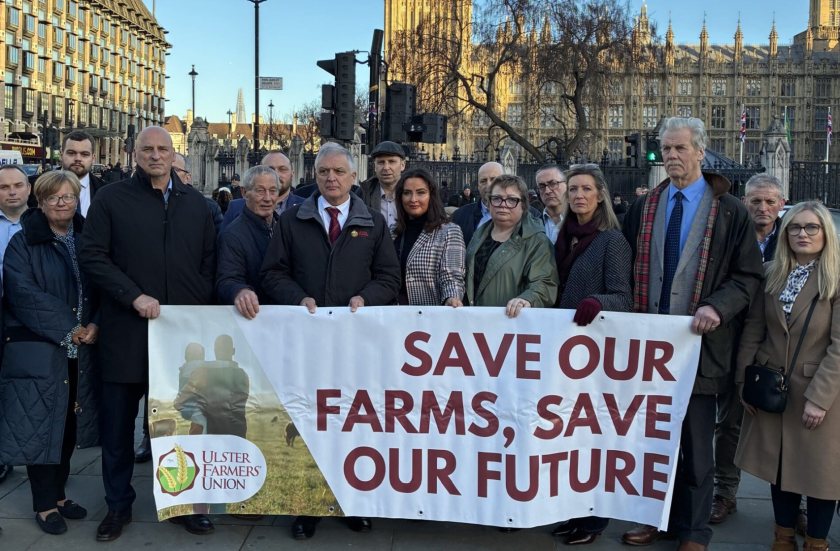
Northern Ireland farmers have taken their fight to Westminster, warning MPs that proposed inheritance tax reforms would devastate family farms and threaten the future of the region’s agricultural sector.
A delegation from the Ulster Farmers’ Union (UFU) travelled to London to deliver what they described as a stark and urgent message: the changes are, they said, “not fair, not workable, and not grounded in a proper understanding of Northern Ireland’s farming structure.”
The farmers were addressing backbench Labour MPs at an event titled Securing the Future of Family Farming in Northern Ireland, hosted by Labour MP Adam Jogee.
They also heard contributions from Northern Ireland Affairs Committee chair Tonia Antoniazzi and Conservative Shadow Farming Minister Robbie Moore, underscoring the cross-party political attention attracted by the issue.
At the heart of the dispute are proposed inheritance tax (IHT) reforms that would significantly reduce the relief available for agricultural assets, leaving any value above a new threshold exposed to tax.
Farmers argue the changes, which roll out from April 2026, would force families to sell land or livestock simply to meet the liability — a scenario they say would dismantle farms built over generations.
The UFU delegation followed the event with further meetings, holding discussions with MPs and peers from all parties, delivering a signed letter to the Treasury and taking part in a rally opposing what they describe as damaging and unrealistic tax plans.
UFU president William Irvine said members felt they had no choice but to put their case directly to the politicians shaping the budget.
“Our farmers have been forced to travel from Northern Ireland to Westminster to deliver their personal stories and fears directly to the policymakers responsible for budget decisions, as the chancellor is refusing to listen,” he said.
He added that UFU members had warned MPs that the proposed changes would “lead to the ruin of livelihoods and farms which have taken generations to build.”
During the meetings, UFU representatives stressed that Northern Ireland’s farming model makes the region particularly vulnerable. Most farms are owner-occupied, with high land values and assets tied up in fields, machinery and livestock rather than cash reserves.
Irvine said these are “ordinary working farms, often held by a single individual”, describing local agriculture as “asset-rich but cash-poor”. He warned that many families would simply be unable to raise the liquidity required in a short timeframe, calling the plans “not only unworkable but profoundly unfair – it’s a tax on tragedy.”
He urged MPs across the political spectrum to intervene. “We will continue to plead with MPs to stand with our families – to listen to their lived experience and work with us to secure a fair and workable approach. This is people’s lives, their homes, their land and the decisions made here will ripple through generations.”
The UFU said it will maintain pressure in the weeks ahead, continuing to lobby the Treasury and key committees as budget preparations continue.
MPs who attended the events indicated they would raise the issue directly with ministers, while the union awaits a formal response from the government.
